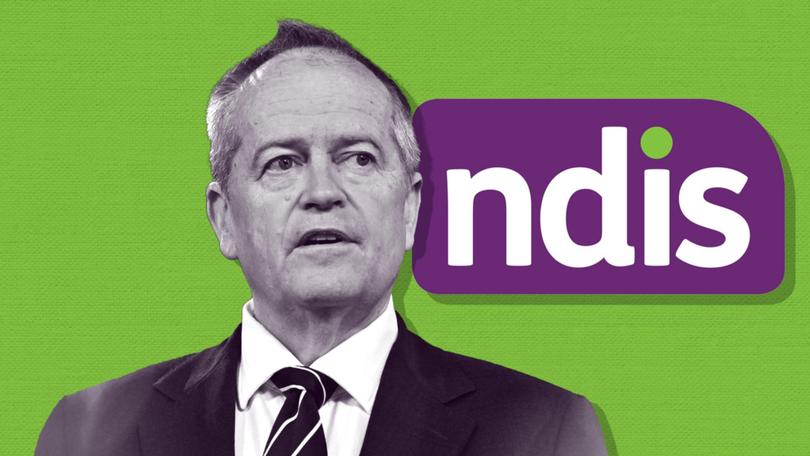Bill Shorten to intervene to stop taxpayer-funded NDIS support for serial sex offender Wayne Wilmot

Bill Shorten is set to intervene to prevent taxpayer-funded NDIS supports being handed to a dangerous serial sex offender after he is released from custody.
The NDIS minister said it was not “appropriate” for Wayne Wilmot — who has spent most of his life behind bars for a series of attacks on women — to be granted disability supports when he returns to the community under strict conditions.
Mr Shorten has also launched an extraordinary attack on the States, accusing them of using the NDIS as a “dumping ground” for State justice systems.
Sign up to The Nightly's newsletters.
Get the first look at the digital newspaper, curated daily stories and breaking headlines delivered to your inbox.
By continuing you agree to our Terms and Privacy Policy.The intervention comes after it emerged Wilmot, who was involved in the 1988 kidnapping and rape of 20-year-old Janine Balding, was set to be released from custody with the help of NDIS-funded supports. A court found that Wilmot did not take part in the subsequent murder of the bank teller.
NSW Supreme Court documents show Wilmot — who has been diagnosed with psychopathic traits — is in line for eight hours a week of help with daily life and 16 hours a week for assistance with “economic and community participation”.
The NDIA, which runs the scheme, confirmed to The Nightly it had decided on an “interim plan” but no final decision on funding had been made.
In a statement, Mr Shorten said he was working to make sure Wilmot did not receive NDIS funding.
“He has received no NDIS funding,” Mr Shorten said.
“We do not believe it is appropriate for this person to receive NDIS-funded community supports in this case, and we are working to ensure this is the outcome within the law.”
Wilmot, now aged in his early 50s, has a history of sexual offending which started at age 13.
A psychological assessment ahead of his expected release said that the serial offender had no concern or empathy for other people while also posing a serious risk of reoffending.
The latest revelations came after the Nine papers revealed a separate case in which a 40-year-old man with prior convictions for rape and sexual assault qualified for $1.4 million in NDIS funding.
The funding will allow for round-the-clock supervision from two staff in a high-security unit.
The man has mild-to-moderate intellectual disability, the paper reported.
The cases have ignited debate about what should or shouldn’t be funded under the $42 billion NDIS, especially as the Federal Government attempts to curb the scheme’s spiralling costs.

It has also fuelled the ongoing row between the States and the Commonwealth over responsibility for funding disability support.
The scheme, like Medicare, is designed to help all Australians who need it — regardless of prior criminal convictions.
In a pointed message to the States, Mr Shorten said the NDIS cannot be the “dumping ground for state justice systems to keep Australians safe from violent criminals”.
He said he would write to the States demanding they stop keeping the NDIA “in the dark” and start reporting when a serious criminal is released from jail.
“Being a criminal is not a disability. Being a sex predator is not a disability,” Mr Shorten.
“These are clearly policing and law and order areas that are the province of the states.
“I don’t recall being made the chief justice, the chief commissioner or the chief parole officer of the states and territories.”
Shadow NDIS Minister Michael Sukkar said people convicted of serious violent crimes shouldn’t be accessing funding under the scheme as part of their transition back to the community.
Mr Sukkar said Mr Shorten must immediately disclose how many of the scheme’s 640,000 participants have serious criminal convictions, how much funding they are receiving and the number of support workers potentially at risk.
“It is vitally important to protect the safety of carers and providers who may be vulnerable working with those with a serious criminal conviction,” Mr Sukkar said.
